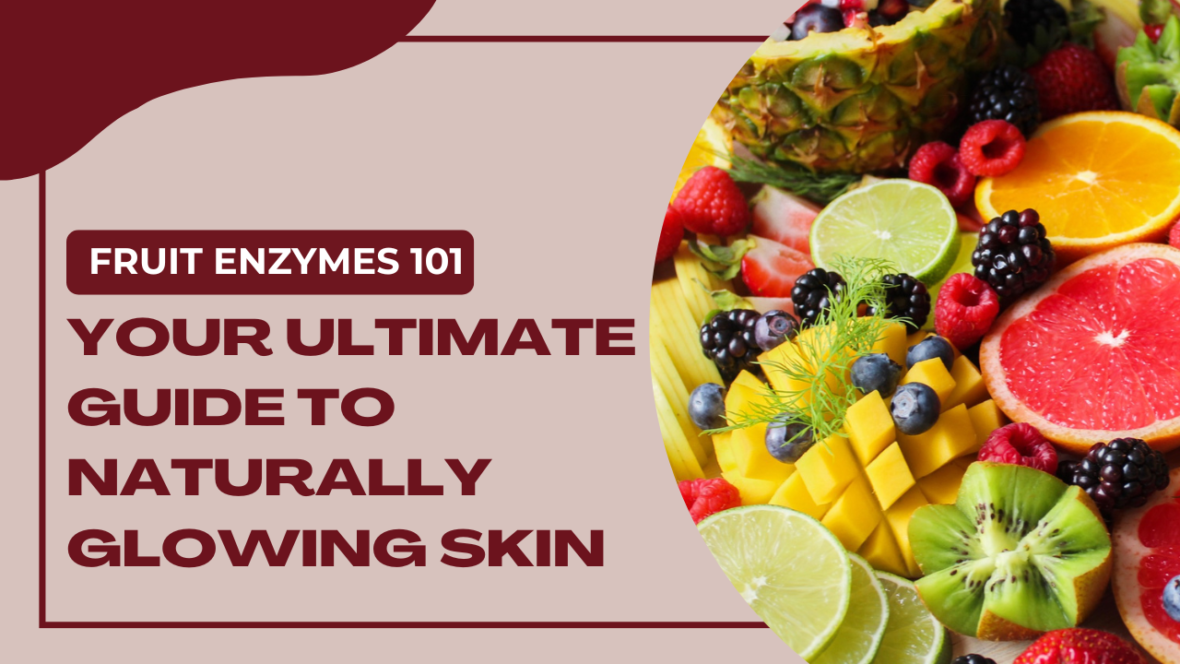Imagine you are walking through an orchard, surrounded by ripe fruits, and suddenly you realise…. These fruits are not just for eating! Fruit enzymes are making waves in skincare. Think of fruit enzymes as gentle little helpers that work wonders on your skin. Fruit enzymes are packed with vitamins, antioxidants, and other goodies that nourish and rejuvenate your skin. Let’s dive into the juicy world of fruit enzymes in skincare and discover the sweet secrets behind them.
What are fruit enzymes?
Enzymes are proteins present in our bodies that accelerate or allow reactions that otherwise would be slow or not happen at all. Each enzyme is specific to a reaction. Some enzymes can decompose other molecules (think of digestive enzymes). One type of these enzymes is the enzyme used in skincare.
These enzymes help to eliminate dead cells from the skin. Therefore, they provide bright skin, and they can even reduce the appearance of wrinkles. The most interesting fact about them is that they are gentle with the skin, even with sensitive skin.
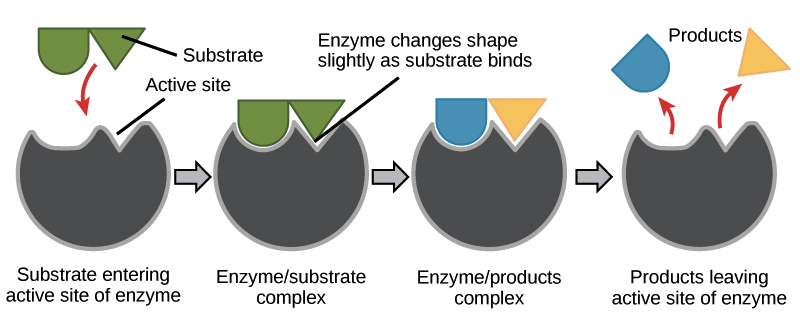
How do they work?
The enzymes are proteins with biochemical catalytic activity. That means that the enzyme accelerates chemical reactions without suffering any change in their structure or properties. The enzymes used in skincare decompose and eliminate dead cells. As a consequence, they can penetrate deeper into the skin and provide deep nourishment.
In fact, fruit enzymes produce exfoliation on the skin. However, it is a mild and natural exfoliation, indicated for people with sensitive skin.
Benefits of using fruit enzymes
The main benefit they provide is skin exfoliation. However, the use of fruit enzymes provides other benefits for the skin.
Soft exfoliation. As already mentioned, the fruit enzymes are a natural exfoliant. They eliminate dead cells, dirt and excess sebum.
Unclog the pores. The fruit enzymes can go into the pores and unclog them. That produces the effect of luminous skin.
Lighten dark spots
Help with other product absorption. This is a direct consequence of the dead cell renewal.
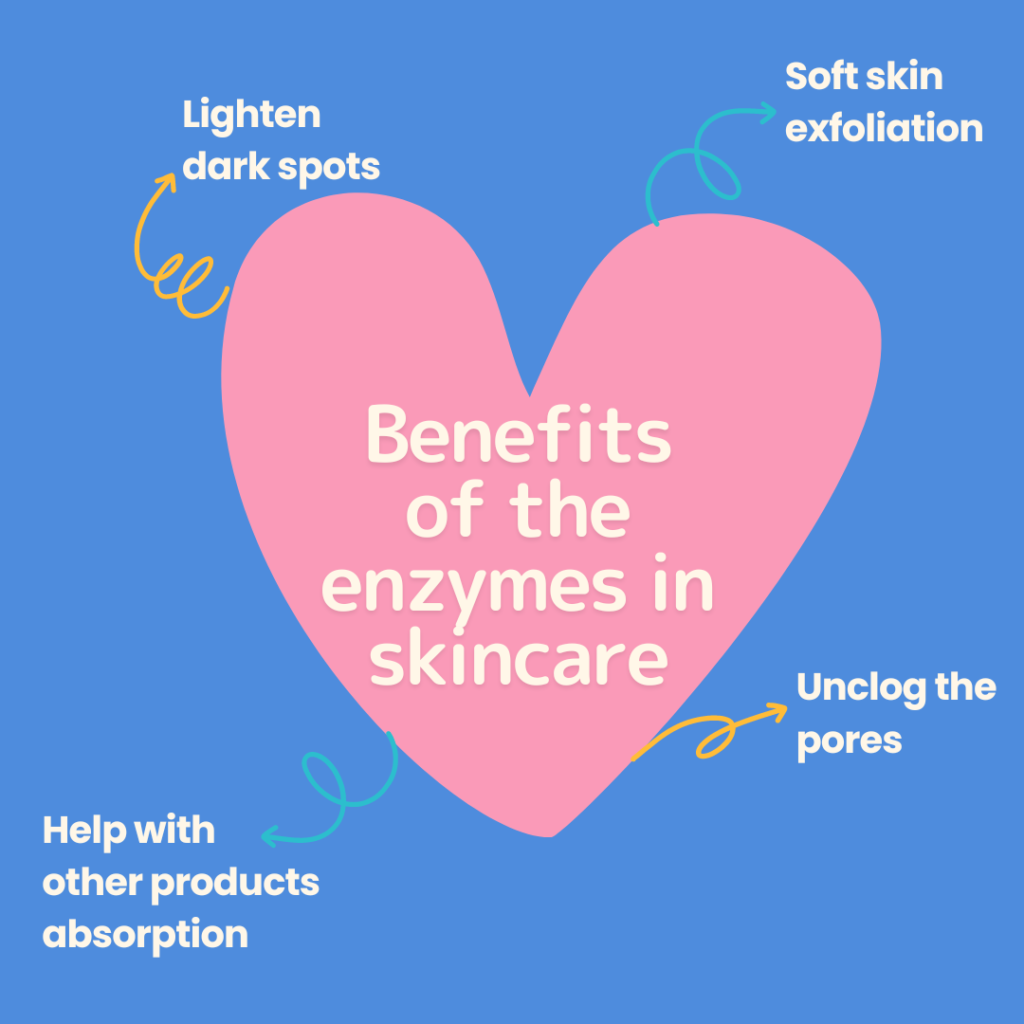
Different fruit enzymes
There are enzymes in most of the fruit. I am going to mention only the more important fruits used in skincare.
Papaya. Papaya enzymes are called papain. Papain has amazing exfoliating properties, helping to remove dead cells and increasing cell turnover. They leave smooth and radiant skin.
Pineapple. Pineapple enzymes are bromelain. They are like papain, helping to get rid of dead cells and leave bright skin. Bromelain has also anti-inflammatory properties.
Pumpkin. Pumpkin enzymes can gently exfoliate the skin, leaving a smoother and more even complexion. They also contain antioxidants and vitamins that nourish the skin.
Kiwi fruit. Kiwi fruit enzymes contain actinidin, which helps to break down proteins and exfoliate the skin. They also improve skin texture and brighten dull skin.
Blueberry. Blueberry enzymes are rich in antioxidants like vitamins C and E. They brighten the skin and help to fight free radicals. They also help to control sebum production.
Cherry. Cherry enzymes contain natural acids like malic acid, which produces a gentle exfoliation and unclogs the pores. They also have antioxidant properties.
Mango. They contain mangiferin, which has antioxidant and anti-inflammatory properties that help to smooth and soothe the skin. They also promote collagen production.
Lemon. Lemon enzymes are rich in citric acid, which helps to fight dark spots. However, lemon enzymes can irritate sensitive skin.
Grapes. Grape enzymes contain AHA-like tartaric acid, which reduces the appearance of fine lines and provides a smooth complexion.
Apple. The apple enzyme also contains AHA, mainly malic acid. This acid promotes cell turnover and improves skin texture. They also help to balance the skin’s pH.

Enzymes for each skin type
As you can see, there is a huge variety of fruit enzymes, and you may not know which one you should use. Let’s see which enzymes should be used for each skin type.
Oily and acne-prone skin
People with oily or acne-prone skin should use enzymes which unclog pores and control sebum production. The best enzymes for them are papaya, blueberry and pumpkin enzymes.
Dry skin
People with dry skin will enjoy enzymes which provide hydration and nourishment. They should choose pineapple or grape enzymes.
Sensitive skin
If you have sensitive skin, you may be scared of exfoliating the skin. In this case, fruit enzymes are your better option, mainly if you go for cherry, raspberry or pomegranate enzymes, as they have anti-inflammatory properties.
Mature skin
Mature skin should be looking for enzymes which improve collagen production. This is the case with pineapple, pumpkin or mango enzymes.
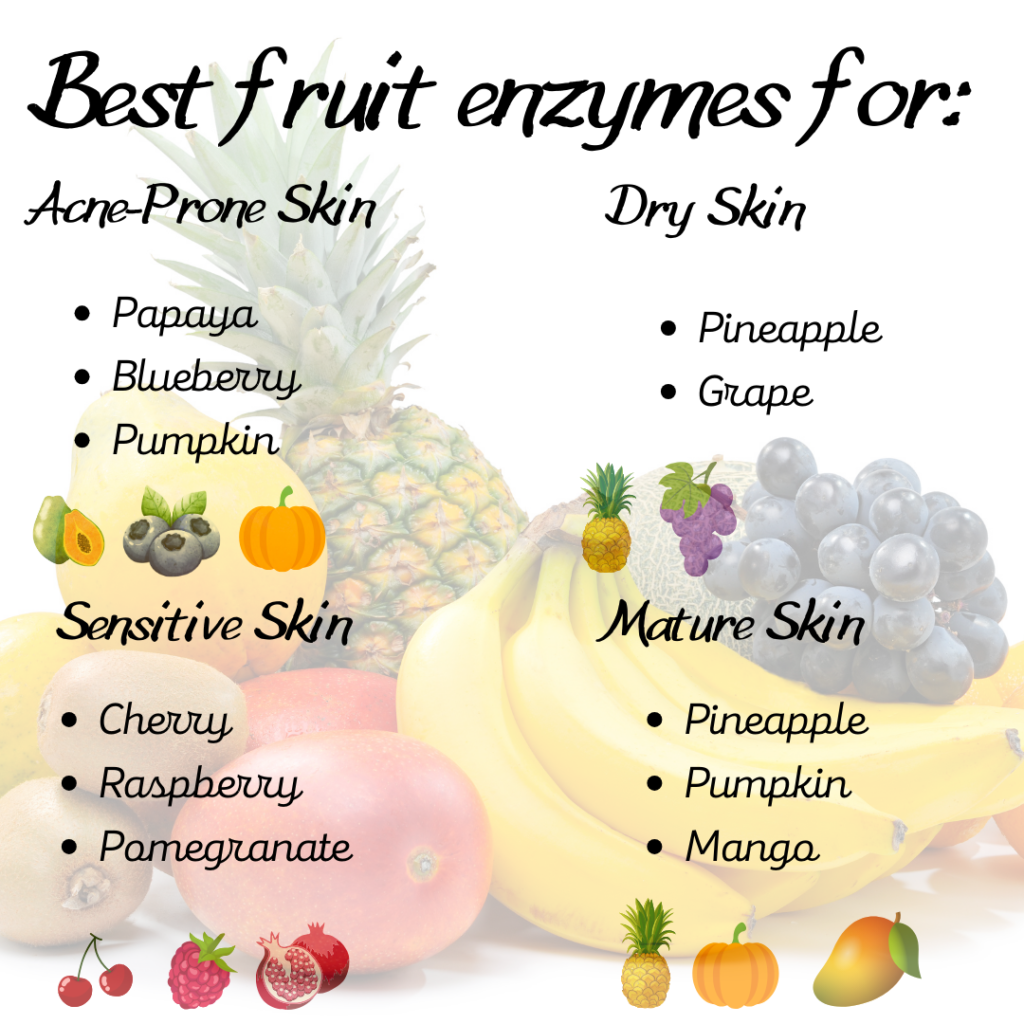
My Favourite Fruit Enzyme Products
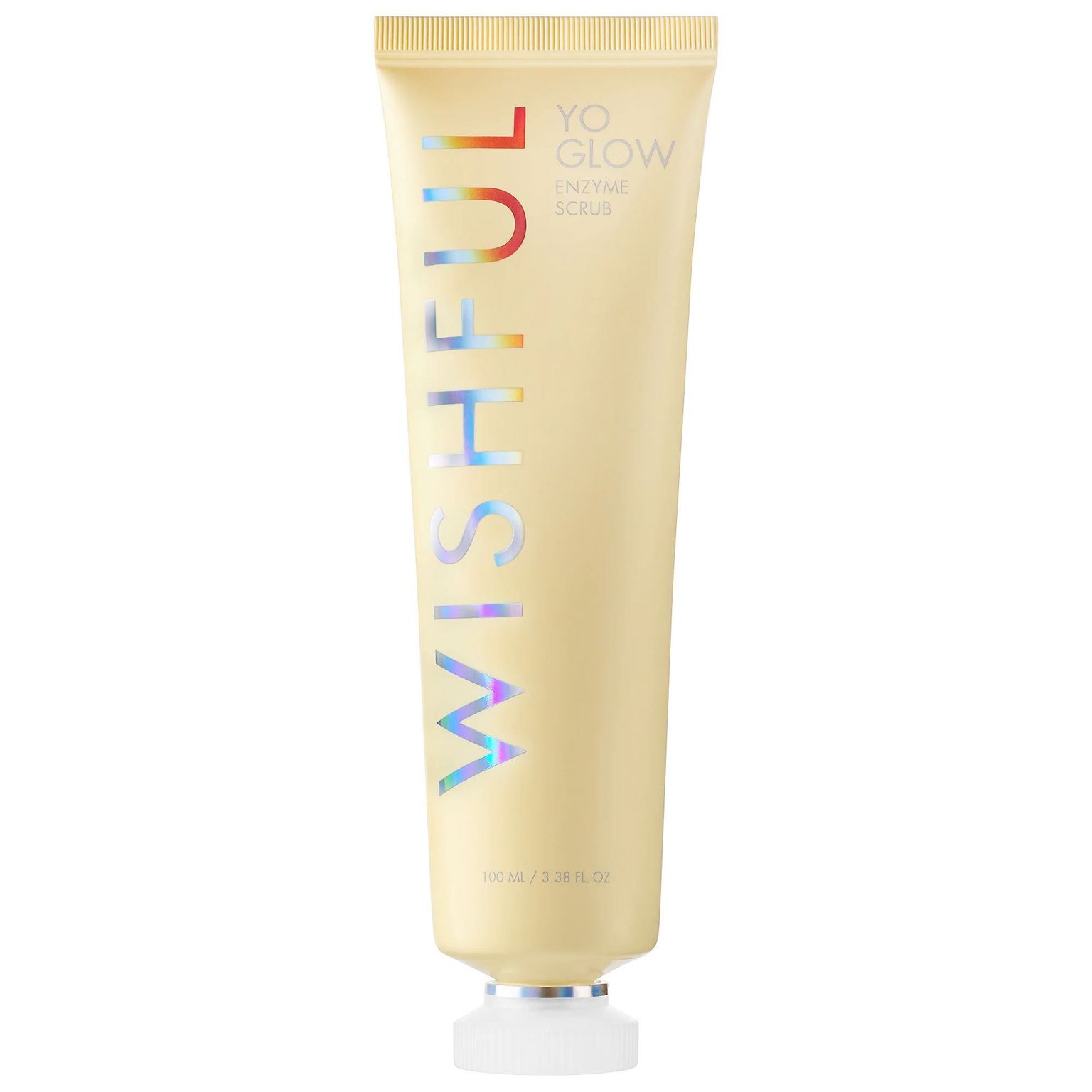
Wishful Yo Glow Enzyme Scrub
It’s a 3-in-1 physical, chemical and enzymatic exfoliant with AHAs & BHAs that gently smooths, brightens and evens out skin tone for glowy, baby-soft skin (instantly and over time!).
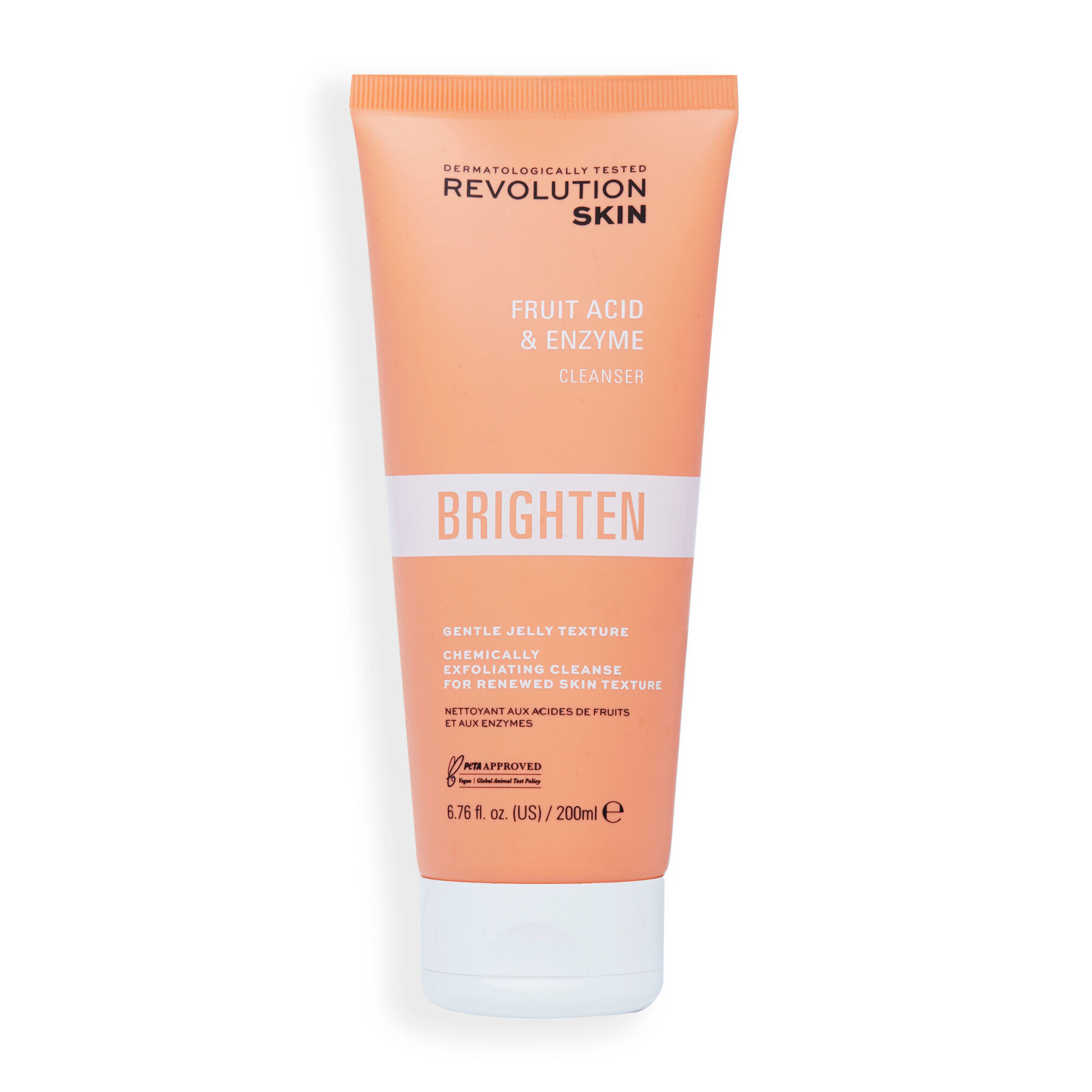
Revolution Skincare Fruit Acid and Enzyme Cleanser
Revolution Skincare’s Fruit Acid and Enzyme Cleanser is a jelly-textured formula that encourages a smooth, visibly glowing complexion.
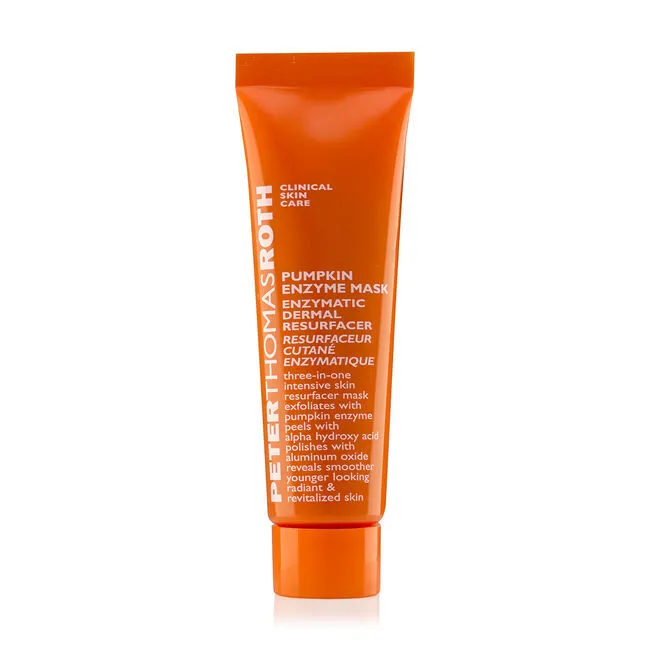
Peter Thomas Roth Pumpkin Enzyme Mask
This powerful, triple-action manual, chemical and enzymatic exfoliating treatment addresses a dull, aging, and congested complexion in three ways: exfoliates with Pumpkin Enzyme, reveals with Alpha Hydroxy Acid and polishes with Aluminum Oxide Crystals
In conclusion, the incorporation of enzymes in skincare has changed the way we approach our beauty routine. From papaya to pineapple, kiwi to cherry, these molecules offer lots of benefits for our skin. Whether it is gentle exfoliation, brightening or nourishing properties you are looking for, fruit enzymes deliver it, leaving behind a radiant and youthful complexion. Your skin will thank you for it.
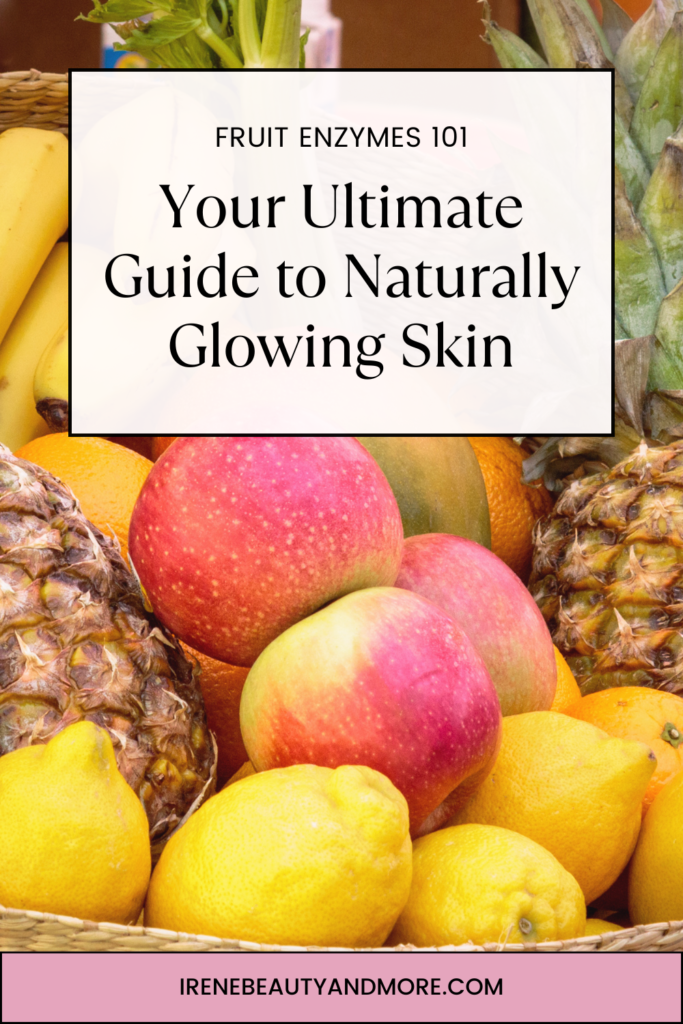
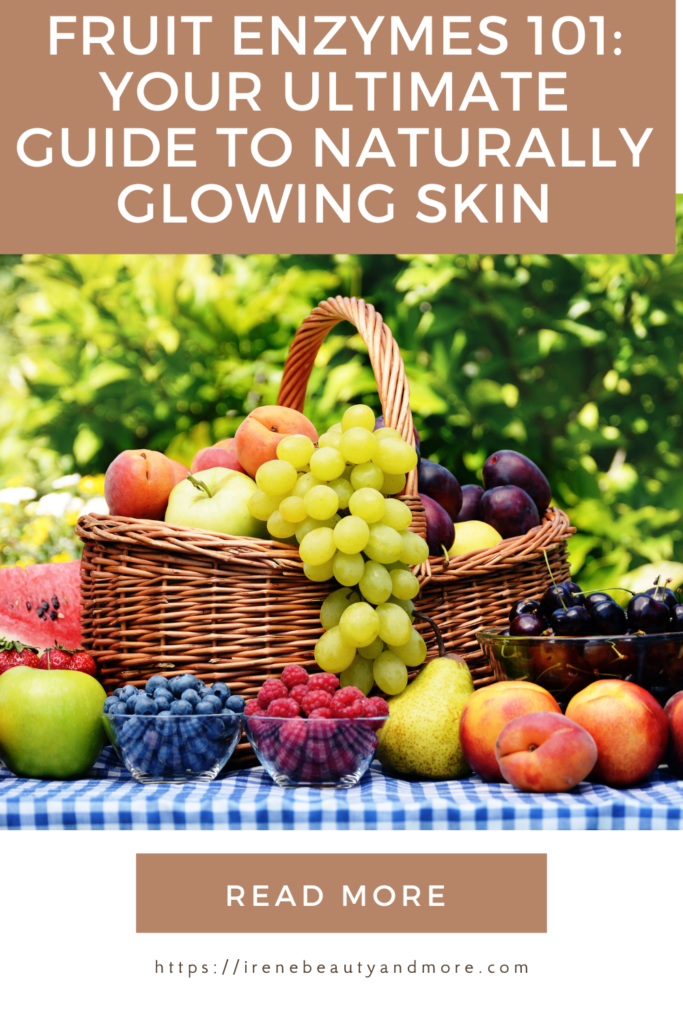
Bear in mind that some of the links in this post are affiliate links and if you go through them to make a purchase I will earn a commission. Keep in mind that I link these companies and their products because of their quality and not because of the commission I receive from your purchases. The decision is yours, and whether or not you decide to buy something is completely up to you.
